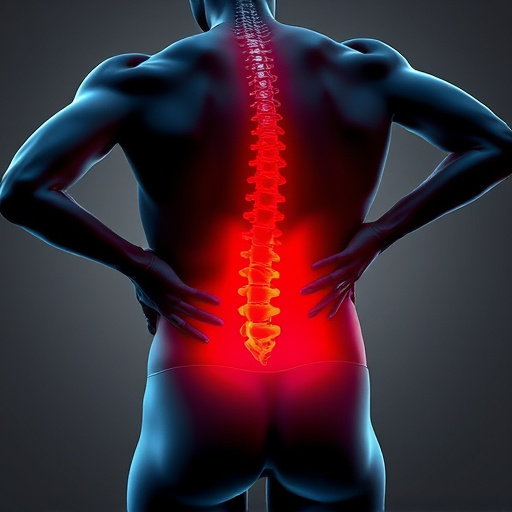Traumatic Brain Injuries (TBI) are a prevalent concern within military communities, requiring specialized care at dedicated treatment centers. Initial assessment includes neuropsychological testing to gauge cognitive functions and plan rehabilitation, which often involves multidisciplinary approaches like chiropractic care for spinal misalignments and therapeutic exercises to improve neurological connectivity. The ultimate goal is to restore patients' full functionality, enabling them to reintegrate into daily life and military service through advanced rehabilitation techniques.
Military Injury Treatment Centers are vital hubs dedicated to addressing the unique challenges faced by service members. This article delves into three prevalent injuries: Traumatic Brain Injuries (TBI), lower extremity traumas, and psychological trauma leading to Post-Traumatic Stress Disorder (PTSD). We explore their causes, symptoms, diagnostic methods, and diverse treatment approaches, from rehabilitation to cutting-edge prosthetic solutions. Understanding these conditions is crucial for recognizing the comprehensive care military personnel require in specialized treatment centers.
- Traumatic Brain Injuries (TBI): Assessment and Rehabilitation
- – Prevalence of TBI in military personnel
- – Common causes: blasts, accidents, falls
Traumatic Brain Injuries (TBI): Assessment and Rehabilitation

Traumatic Brain Injuries (TBI) are a significant concern within military injury treatment centers, often resulting from combat situations and requiring specialized care. Assessment for TBI involves comprehensive neuropsychological testing to evaluate cognitive functions such as memory, attention, processing speed, and executive abilities. This initial phase is crucial in determining the extent of brain damage and planning an appropriate rehabilitation strategy.
Rehabilitation for TBI typically includes a multidisciplinary approach, incorporating therapeutic exercises designed to enhance muscle recovery and improve neurological connectivity. Personal injury chiropractic care can play a vital role in this process by addressing spinal misalignments that may have occurred due to trauma. The ultimate goal of military injury treatment centers is to facilitate the patient’s return to full functionality, ensuring they are equipped to face the challenges of daily life and service after their injury.
– Prevalence of TBI in military personnel

Traumatic Brain Injury (TBI), often referred to as a “hidden wound,” is a significant concern within military communities. According to recent statistics, TBI is among the most prevalent injuries sustained by active-duty military personnel, with incidences ranging from mild concussions to severe traumatic brain damages. This hidden injury has garnered substantial attention due to its potential long-term effects on cognitive functions and overall quality of life. Military injury treatment centers are well-equipped to handle such complex cases, offering specialized services tailored to address the unique challenges posed by TBI.
The impact of TBI extends beyond physical symptoms, often affecting memory, concentration, and emotional regulation—areas crucial for military effectiveness. As a result, comprehensive injury rehabilitation becomes an essential component in supporting affected service members’ transition back to civilian life or active duty. These treatment centers employ advanced techniques, including personal injury chiropractic care and mobility improvement programs, to aid in recovery and restore individuals’ capabilities, ensuring they receive the best possible care during their journey towards healing.
– Common causes: blasts, accidents, falls

Military personnel often encounter a range of injuries due to the unique and demanding nature of their service. Common causes include blasts from IEDs (improvised explosive devices), accidents during training or on active duty, and falls from heights or uneven terrain. These incidents can result in severe physical trauma, requiring specialized care at military injury treatment centers.
Blasts can lead to a variety of injuries, including whiplash treatment needs due to the force and rapid acceleration/deceleration. Accidents may cause fractures, sprains, and soft tissue damage, while falls can result in head traumas, spine injuries like herniated disc treatment requirements, or severe muscle strains. Prompt evaluation and comprehensive therapeutic exercises are crucial for optimal recovery in these cases.
Military injury treatment centers play a vital role in addressing common injuries faced by service members. Traumatic Brain Injuries (TBI), often caused by blasts, accidents, or falls, are a significant concern and require specialized assessment and rehabilitation. These facilities offer comprehensive care tailored to the unique needs of military personnel, ensuring they receive the best possible support for their recovery. By focusing on advanced treatments and personalized rehabilitation programs, military injury treatment centers foster not just physical healing but also emotional well-being, enabling service members to reintegrate into civilian life with enhanced resilience.














